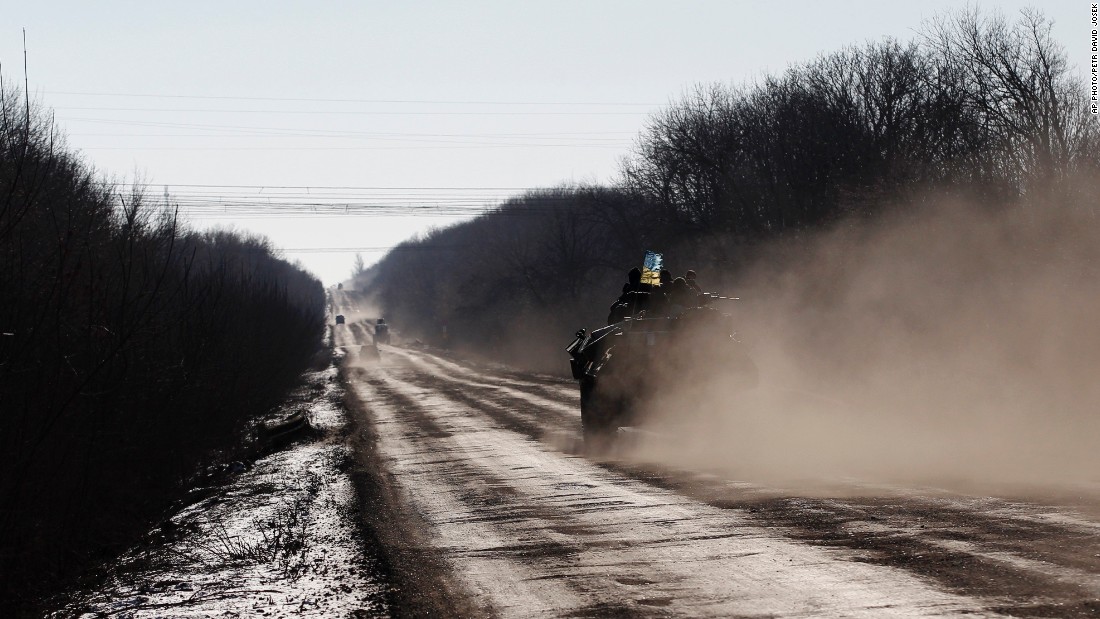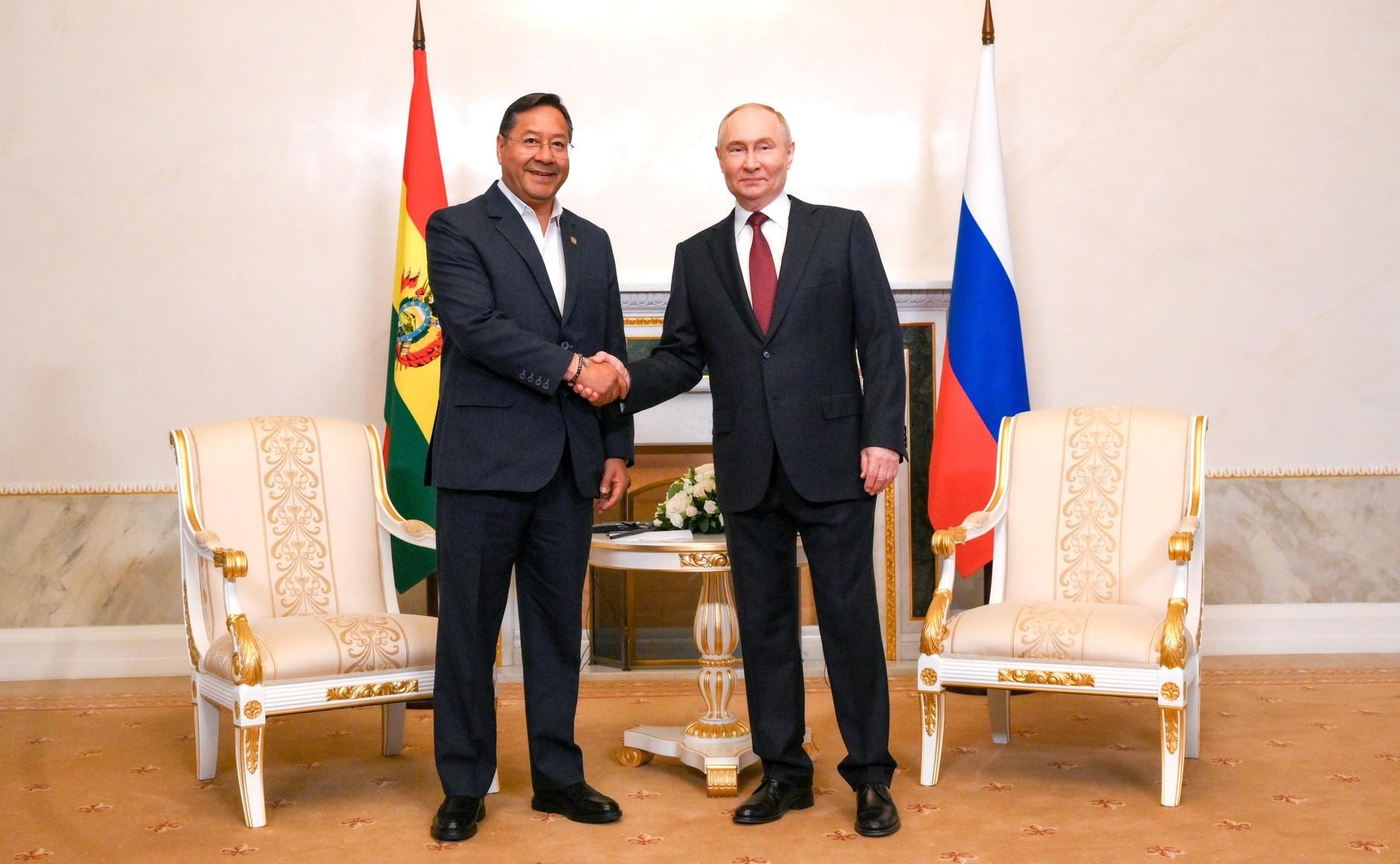
The Debacle in Debaltseve
The Debacle in Debaltseve
The ceasefire agreement signed in Minsk last week (February 12) did not stop the fighting in the Donbas region of eastern Ukraine (Donbas encompasses the Donetsk and Luhansk provinces). The Moscow-backed Donbas rebels concentrated their efforts on an offensive northeast of Donetsk in the so-called Debaltseve bulge—an important rail and road junction semi-surrounded by the rebels since last September. The rebels claimed they had the Ukrainian forces fully surrounded in Debaltseve, and this area was not covered by the “Minsk Two” ceasefire agreement. The rebels demanded that thousands of Ukrainian military personnel in Debaltseve must surrender or be slaughtered. The separatist forces refused to allow observers from the Organization for Security and Cooperation in Europe (OSCE) into Debaltseve in apparent violation of the Minsk Two accords (Interfax, February 17).
Russian President Vladimir Putin, speaking in Budapest during a visit to Hungary, supported the rebels and mocked the Ukrainians, who “tried to relieve their troops, but failed.” Putin called on the Ukrainian troops “to lay down their arms to save their lives,” and he hoped “the rebels will allow the Ukrainians free passage out after surrendering.” According to Putin, the United States is already supplying the Ukrainian military with weapons, “but this will not help, because most Ukrainian soldiers do not want to fight their brothers.” Putin ridiculed the Ukrainian military: “It is always bad to be defeated, especially by former farmers and miners.” Still, Putin declared himself an “optimist,” noting: After the Debaltseve problem is resolved, the ceasefire may hold and, “most importantly, the Kyiv authorities agreed on a profound constitutional reform to federalize Ukraine” together with the Donbas rebels (Kremlin.ru, February 17).
As Putin was gloating in Budapest, Ukrainian President Petro Poroshenko ordered his troops to retreat from the Debaltseve bulge. According to Poroshenko, some 2,500 servicemen retreated from Debaltseve, taking with them military vehicles, tanks, guns and other equipment: “This successful redeployment proves our troops were not surrounded” (Interfax, February 18). The Ukrainian General Staff announced: During the withdrawal from Debaltseve, 13 servicemen were killed, 157 wounded, 90 taken prisoner by the rebels and 82 unaccounted for (Interfax, February 19). According to the Donetsk rebel leader Alexander Zakharchenko, who was reportedly shot in the leg in Debaltseve on February 17, and spoke to reporters from a hospital in Donetsk, “some 3,000 to 3,500 Ukrainian soldiers were killed in Debaltseve,” hundreds have been captured and are continuing to surrender, large amounts of munitions and armaments have been captured, while mopping-up operations continue (Interfax, February 19).
The overall number of combatants fighting in Donbas on both sides has never been significant—thousands of troops spread out over a relatively large region. There are no frontlines with trenches—only strong points and check points with garrisons here and there, mostly in towns and villages. With the frontline so porous, any “surrounding” of anyone is not as ominous as it sounds. At present, it is still winter in Donbas: armored personnel carriers, other armor and army trucks can move through the fields. A rebel field commander involved in the Debaltseve fighting told Russian BBC Radio: “The Ukrainians in Debaltseve were hard pressed, but never fully surrounded.” The rebels were firing at Ukrainian supply lines, while “the Ukrainians were firing on ours.” This rebel commander does not believe the ceasefire stipulated by Minsk Two has any chance of holding, since both sides will use the lull in the fighting, “as before,” to reorganize, resupply and prepare for more fighting, “since no one trusts anyone” (BBC News–Russian Service, February 18).
The daily Vedomosti reports, quoting Russian military sources, the withdrawal of the Ukrainian soldiers from Debaltseve with weapons and “military vehicles they managed to fill with fuel and get running” was the result of a backroom deal, negotiated by Russian and Ukrainian military officers from the joint observer group and “some Ukrainian politicians.” Since all sides want the Minsk Two ceasefire agreement to succeed or at least not to collapse immediately, “the Debaltseve problem was removed.” Poroshenko could have agreed some compromise on the Debaltseve bulge with Putin during the Minsk talks on February 12, but refused, so “hundreds of his troops were taken prisoner” and the Ukrainian military was humiliated by another defeat (Vedomosti, February 19). This account, however, does not explain why the Ukrainian troops, presumably retreating under the terms of a backroom agreement, were hit on the road by punishing rebel fire.
A full implementation of the Minsk Two accords, which in the future leaves the rebel-controlled parts of Donbas as a semi-autonomous Russian-speaking region within a partially decentralized, but mostly Western-orientated Ukraine, is hardly something Moscow could tolerate. The pro-Russia rebels insist that any durable political solution of the conflict must involve a fundamental change of the Ukrainian constitution and the regime in Kyiv. The rebels demand the transformation of Ukraine into a loose confederation of semi-independent regions, the renunciation of laws and decrees that allowed the use of force against the separatists, and a renewed declaration of Ukrainian non-alignment. “Any move of Ukraine closer to NATO [the North Atlantic Treaty Organization] will mean the immediate abrogation of the Minsk accords,” the rebels have stated (Interfax. February 16).
The present Ukrainian government and the Supreme Rada (parliament) elected last October are predominantly pro-Western, which reflects the majority opinion of the Ukrainian people. A political and constitutional regime change, like the one Putin and the rebels are demanding, would seem to require a fundamental destabilization in Kyiv: Ukrainians must be forced to feel vulnerable, abandoned by the West and divided, their military publicly humiliated by pro-Russia forces. The Debaltseve debacle seems to be already fomenting a storm.
Ukrainian soldiers and volunteers have been constantly commenting on Facebook about the Debaltseve battle from the field. The commander of the “Donbas” volunteer battalion and Rada deputy Semen Semenchenko has accused the Ukrainian military command (General Staff) of gross incompetence. The General Staff and other volunteers, in turn, have accused Semenchenko of disclosing sensitive military information in his Facebook posts, which resulted in rebels bombarding the columns of troops retreating from Debaltseve (Fresh-news.org, February 18). In his latest Facebook comments, Semenchenko announced the creation of a joint command of 17 volunteer battalions. According to Semenchenko, Poroshenko is being “misled” by the military command on the real losses and the general situation. A “parallel volunteer general staff” has been previously promoted by extreme nationalist leader (and Rada deputy) Dmitry Yarosh (UNIAN, February 19). The Russian plan of utter Ukrainian destabilization seems to be progressing.


